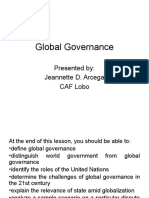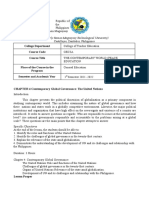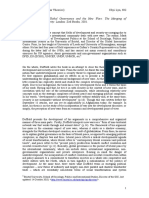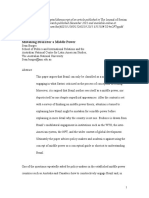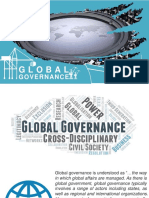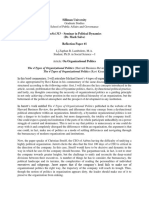0% found this document useful (0 votes)
37 views11 pagesPolitical Science Assignment
The document provides an overview of International Relations (IR), defining its scope, importance, and the role of sovereign states within the world community. It discusses various perspectives on IR, including realism, liberalism, and constructivism, and highlights the significance of diplomacy, economic relations, security studies, and human rights. Additionally, it addresses the challenges to sovereignty posed by globalization, humanitarian interventions, and cybersecurity threats, while emphasizing the continued importance of sovereign states in global politics.
Uploaded by
Saisagar AthinarapuCopyright
© © All Rights Reserved
We take content rights seriously. If you suspect this is your content, claim it here.
Available Formats
Download as DOCX, PDF, TXT or read online on Scribd
0% found this document useful (0 votes)
37 views11 pagesPolitical Science Assignment
The document provides an overview of International Relations (IR), defining its scope, importance, and the role of sovereign states within the world community. It discusses various perspectives on IR, including realism, liberalism, and constructivism, and highlights the significance of diplomacy, economic relations, security studies, and human rights. Additionally, it addresses the challenges to sovereignty posed by globalization, humanitarian interventions, and cybersecurity threats, while emphasizing the continued importance of sovereign states in global politics.
Uploaded by
Saisagar AthinarapuCopyright
© © All Rights Reserved
We take content rights seriously. If you suspect this is your content, claim it here.
Available Formats
Download as DOCX, PDF, TXT or read online on Scribd
/ 11




























































